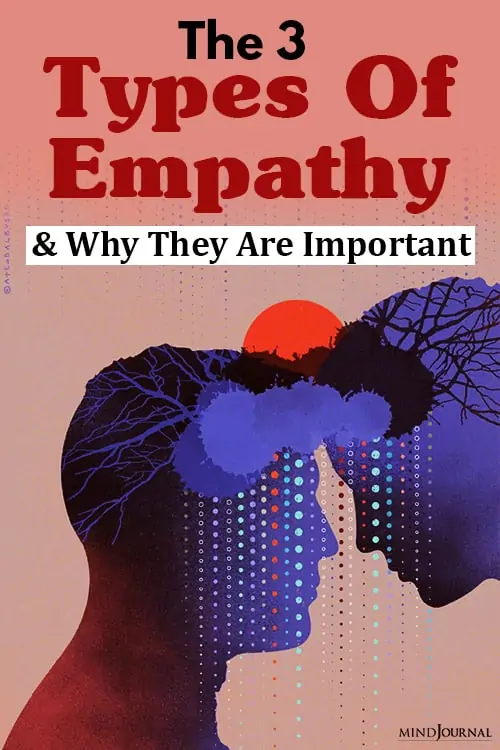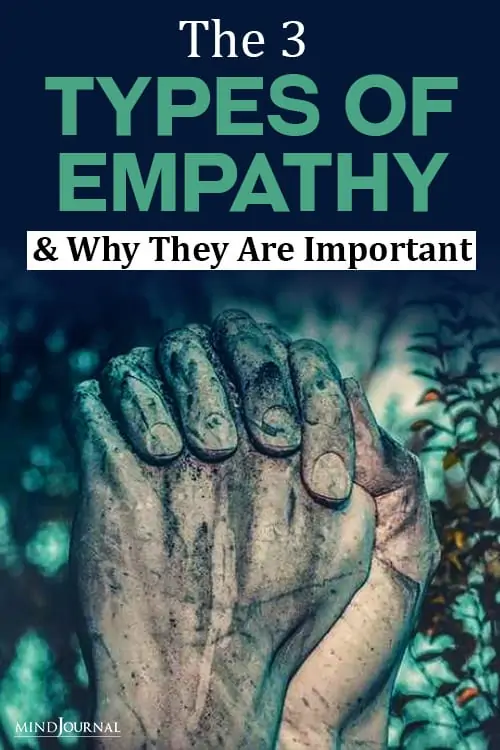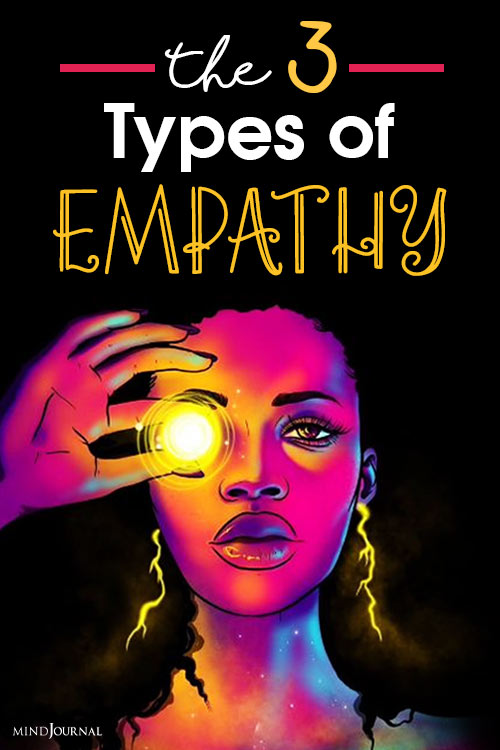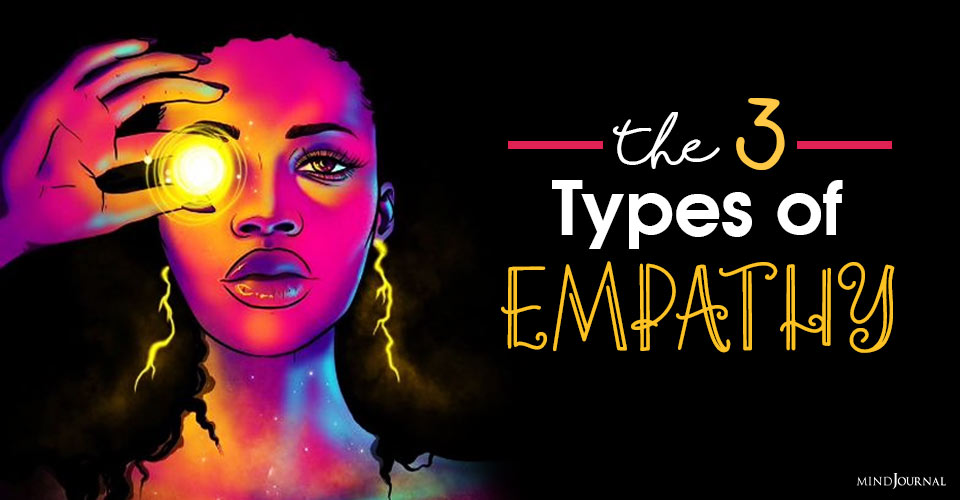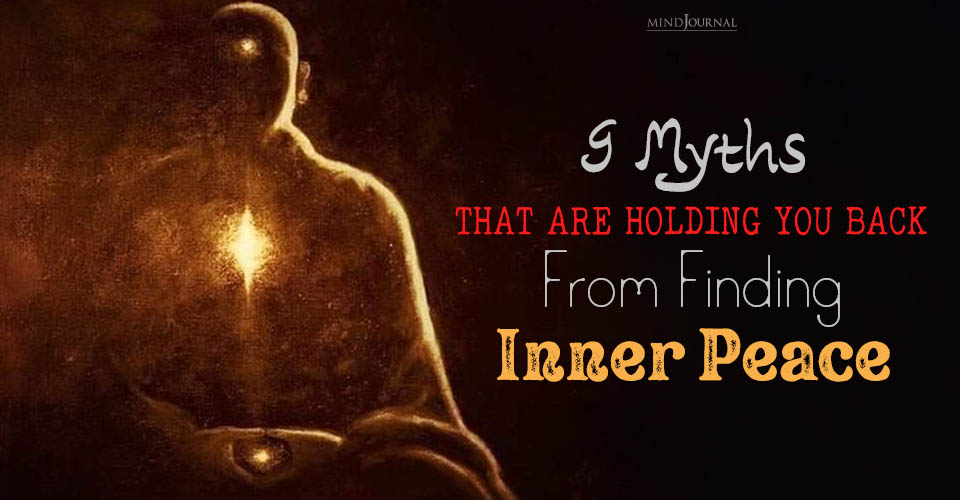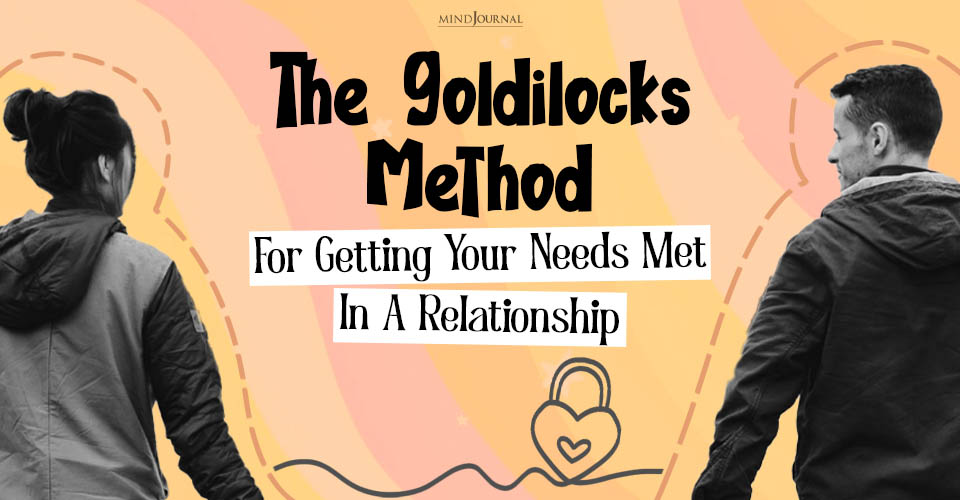Empathy is an essential trait that enables us to better understand relationships. But what are the 3 types of empathy according to psychologists? Understanding these types can help us become more empathetic and connect better with others.
What are the 3 types of empathy?
As empathy is a vast concept, we often tend to appropriately show different kinds of empathy in different situations. Hence, psychologists have identified 3 distinct types of empathy that we may commonly feel. These include – emotional, cognitive & compassionate empathy. These three forms of empathic responses tend to manifest in unique ways based on our own personal experiences in life.
Let us explore what are the 3 types of empathy and gain a better understanding about how empathic we truly are:
1. Emotional empathy
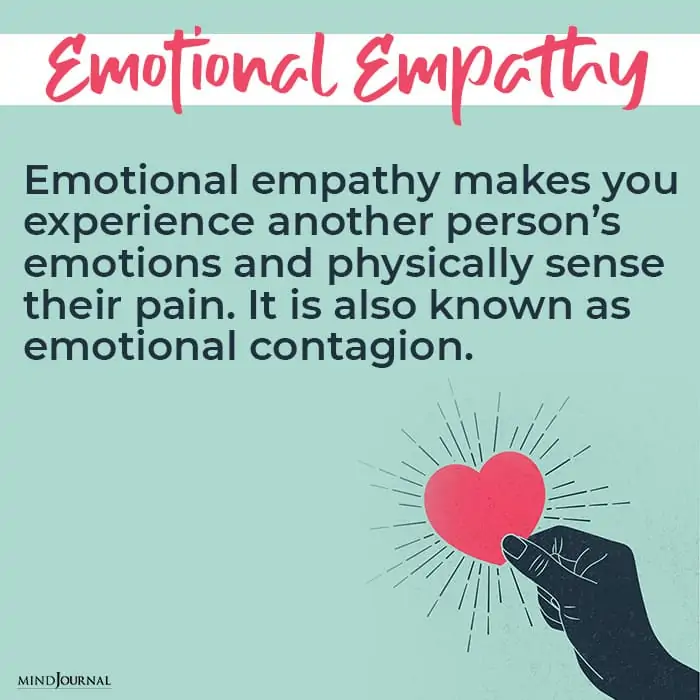
This kind of empathy occurs when you experience another person’s emotions along with them, as if their emotions are contagious. Emotional empathy enables you to physically experience someone else’s pain. Hence, you may experience an upset stomach or may vomit when someone is in pain. According to psychologists, emotional empathy includes three primary aspects:
- Experiencing the same emotions as another individual
- Experiencing personal distress due to the other’s pain & suffering
- Experiencing compassion for the affected individual
Also identified as affective empathy, it can make you experience certain physical sensations as they are triggered by mirror neuron responses in the somatic nervous system in our brain. As you can physically experience another’s emotions, you are better able to connect with their emotional state. However, this can be a difficult and problematic trait for people who have trouble setting up personal boundaries as it can leave them feeling drained and exhausted due to other’s suffering. Among the three types of empathy, emotional empathy can feel the most overwhelming and can seem inappropriate in some situations. However, it is not necessarily a negative experience.
Also known as emotional contagion, this form of empathic response can help you feel more connected to others and strengthen relationships. It allows us to readily identify and experience others’ emotions and is considered important in caring professions, like caregivers, healthcare professionals & doctors. It enables us to respond to our loved ones and people in distress appropriately. However, as it can often leave you feeling overwhelmed, it can lead to empathy overload.
Hence, when understanding what are the 3 types of empathy, it is important that you learn to set strong personal boundaries and practice self-control to better manage your own emotions & avoid burnout.
Read also: The Science Behind Empathy And Empaths: 5 Interesting Facts
2. Cognitive empathy
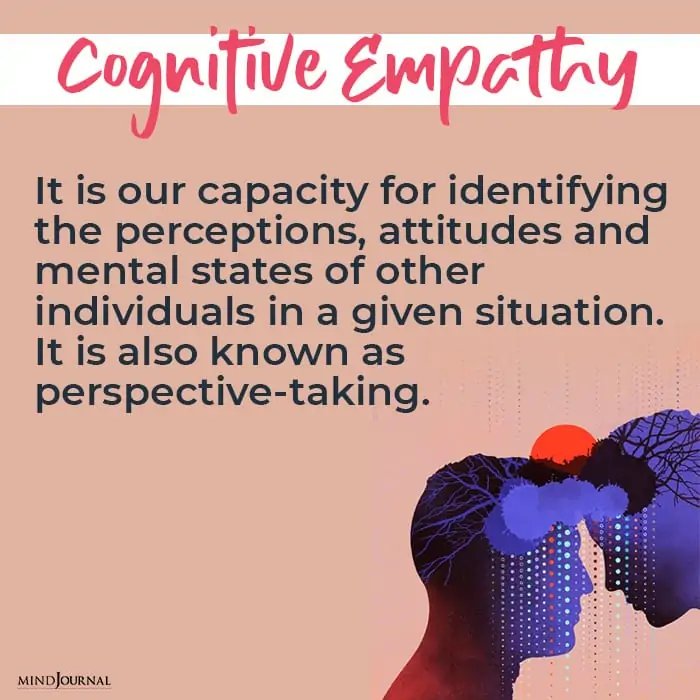
One of three main types of empathy, it refers to our capacity for identifying the perceptions, attitudes and mental states of other individuals on an intellectual level. Cognition refers to knowing or thinking. Cognitive empathy helps us understand what someone may be thinking in a given condition and realize that their cognitive states can differ from ours. Also known as theory of mind (ToM), it is often regarded as perspective-taking. This form of empathy necessitates that we utilize our cognitive processes, like intellect, inferences, attention, communication & reflection to know what someone is thinking and why they may think that way. It helps us communicate more effectively by enabling us to transfer information in the most appropriate way.
When answering the question what are the 3 types of empathy, we must understand that cognitive empathy is primarily associated with understanding, thought and intellect. It can be a powerful tool in understanding different perspectives, motivating others, and negotiating successfully. However, it can prevent us from experiencing other’s feelings and make us feel disconnected.
Cognitive empathy allows us to engage in perspective taking and understand a situation from a different point of view, especially that of another person. So this form of empathy makes us visualize what this individual may actually be experiencing in a given situation.
This trait can be highly useful when you need to interact or connect with someone using understanding and thoughtfulness. However, as it typically involves empathy by thought and doesn’t involve sensing emotions, this can make you seem detached or cold. It enables you to be in someone else’s position using logic and without emotionally engaging with them. It is one of the types of empathy that may not necessarily involve sympathy and compassion, even though ‘feeling’ is considered a vital aspect of empathy. When you have strong perspective taking abilities, you can understand other people’s points of view better, however, you may not choose to get involved with how they feel. This is one of the three types of empathy. Unfortunately, this form of empathy can be easily used in manipulating or abusing someone without feeling any sympathy for them.
Read also: How Narcissists Fool You With False Empathy
3. Compassionate empathy
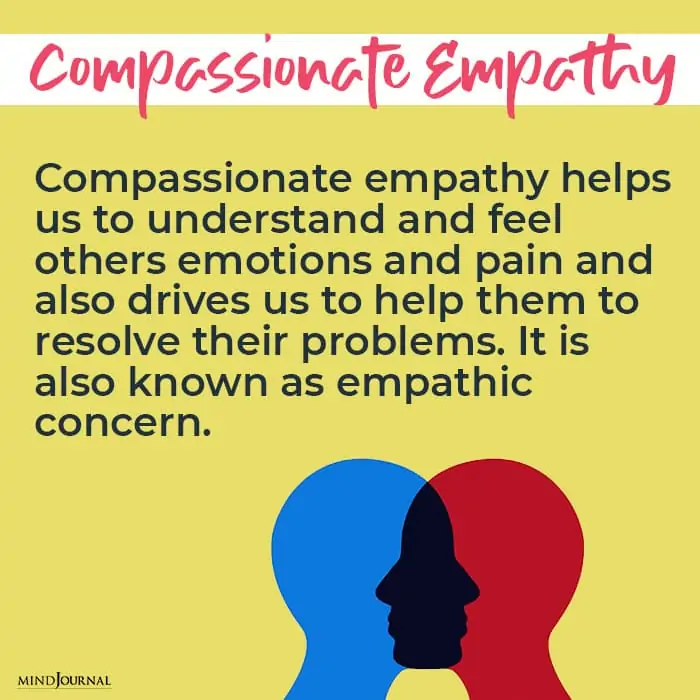
Other cognitive empathy and emotional empathy, another aspect of the question ‘what are the 3 types of empathy’ is compassionate empathy. When someone is empathetic, it does not mean that they will be inclined to help another individual in need. However, compassionate action is often a crucial step. This is where compassionate empathy comes in.
According to psychologists, this is one of the types of empathy that not only enables us to understand and feel others emotions and pain, but also motivates us to help those in need. Also identified as empathic concern, it involves compassion as a crucial aspect of this empathic interaction. A 2016 study describes compassion as “a deep awareness of the suffering of another coupled with the wish to relieve it.” This form of empathy moves us to help someone who is in pain in whatever ways we can. It is associated not only with our intellect & emotion, but also with our ability to take action. Compassionate empathy is typically considered as the ideal kind of empathy and is most appropriate with our loved ones, children and healthcare professionals. It involves the perfect balance of both empathic response and compassion and connects both the heart and the mind. It allows you to understand other’s cognitive and emotional states while maintaining your own center.
Compassionate empathy is different from the other types of empathy as it offers space for mutual sharing of experiences. According to some psychoanalysts, empathy can often feel rather draining, consuming or absorbing which can make the empathic person feel burnt out and empty inside. As a result the person can have a difficult time understanding their own personal boundaries. When you have compassionate empathy, you can engage in behaviors that promote deep emotions of connection with others without compromising your own emotional well-being. Compassion is beneficial for all as it is applied to both self and others.
When caregiving becomes mandatory and compulsive, empathy can become weak and distorted. However, compassionate empathy is driven by caregiving and relieving others of their pain. Borg, Brenner, and Berry believe that the antidote to compulsion is compassion.
Read also: Empathy Is A Choice And We’re Choosing To Avoid It, Says Science
Compassionate empathy involves the perfect balance of both thinking and feeling with loving & kind detachment. It enables us to appropriately respond to a situation utilizing our emotional intelligence. Instead of being burned out or overwhelmed, we learn how to balance compassion with self-awareness. And when this compassion is coupled with genuine empathy, we are driven to take the right action to help another person in pain. It enables us to identify, understand & sympathize with someone and help them to resolve their problems.
Empathy is important
So what is the importance of empathy? Now that we have a fair idea about what are the 3 types of empathy, we need to figure out how can we respond to someone experiencing difficult emotions like sadness, stress, anxiety or even anger? Although most of us may react in a way we may not think is ideal, the most thoughtful way to respond is with empathy. Researchers believe that empathy significantly contributes in the process of developing meaningful relationships, moral development, moral motivation and making moral judgments.
The truth is, the significance of empathy in our lives simply cannot be overlooked. But empathy is not always the same as we tend to exhibit different types of empathy in different circumstances and relationships.
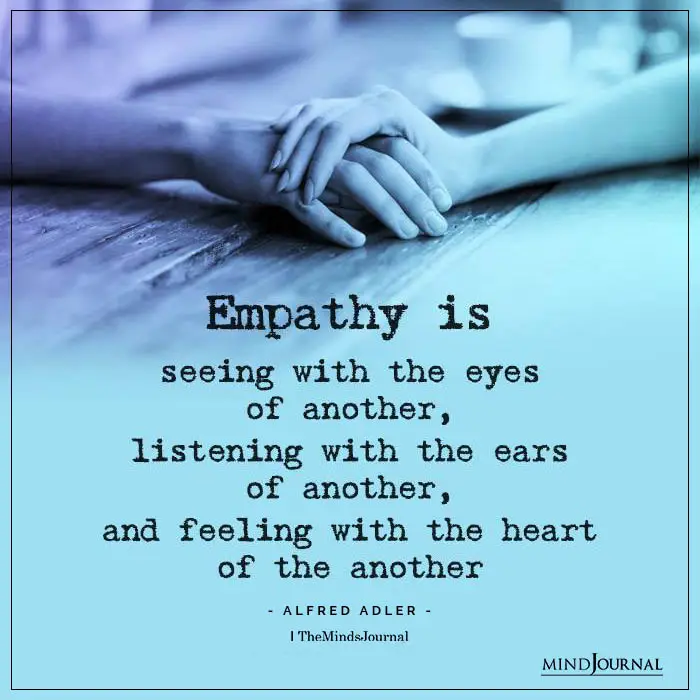
Empathy refers to our ability to identify, feel and understand what another individual, animal, or even fictional character is feeling or experiencing. It involves a variety of complex emotional states that allow us to place ourselves in someone else’s position and imagine their emotions. It involves a wide range of different elements and is crucial for our emotional intelligence (EQ). Empathy enables us to connect with others, build lifelong relationships and be compassionate. According to a 2003 study “Empathy is a balanced curiosity leading to a deeper understanding of another human being; stated another way, empathy is the capacity to understand another person’s experience from within that person’s frame of reference.” It is regarded as the “most important human attribute” in every aspect of our life and plays a crucial role in social and interpersonal relationships. It empowers us to share emotions & experiences and helps build a connection encouraging prosocial behavior.
Read also: 10 Signs You Have Above Average Empathy
Put yourself in others’ shoes
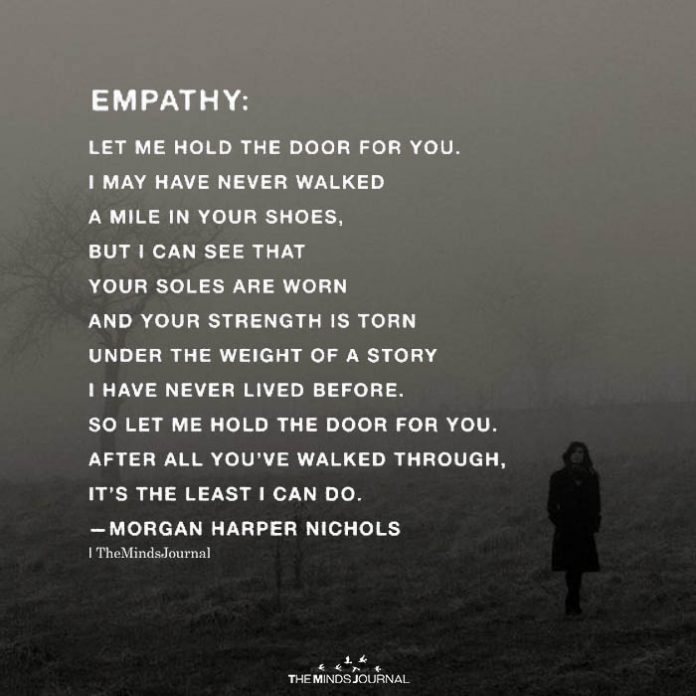
Understanding what are the 3 types of empathy make us realize that empathy is a superpower. It makes us human and empowers us to make our society a better place for everyone. The different forms of empathy mentioned above are the basic types and although they may be known by different names, they all can be majorly categorized under the 3 distinct categories mentioned here. Learning about the types of empathy can help us identify and understand our own empathic abilities and take necessary action to offer help to someone who needs it. It can help you be more authentic when being empathic towards your loved ones and others.
Read also: Why Empathy Must Start With You
Frequently Asked Questions (FAQs):
What are the 3 stages of empathy?
Although there are several models, some experts believe that empathy typically develops through3 primary stages -cognitive empathy, emotional empathy & compassionate empathy.
What is the difference between empathy and sympathy?
Empathy is about understanding from another’s perspective, while sympathy is about understanding from one’s own perspective. Empathy is more concerned about what the other person is feeling, sympathy refers to sharing feelings with the other person and finding a suitable response.
What is the difference between empathy and compassion?
Empathy is about understanding the perspective of another person and imagining their emotions, compassion is our desire to help the person which is triggered by empathic understanding, thoughts and emotions. Empathy typically precedes compassion.
Why is empathy important in society?
Empathy empowers us to build better social and interpersonal relationships, understand what others are going through and respond compassionately as an individual and a society. By recognizing what others are thinking and feeling, we can cultivate strong social connections.
